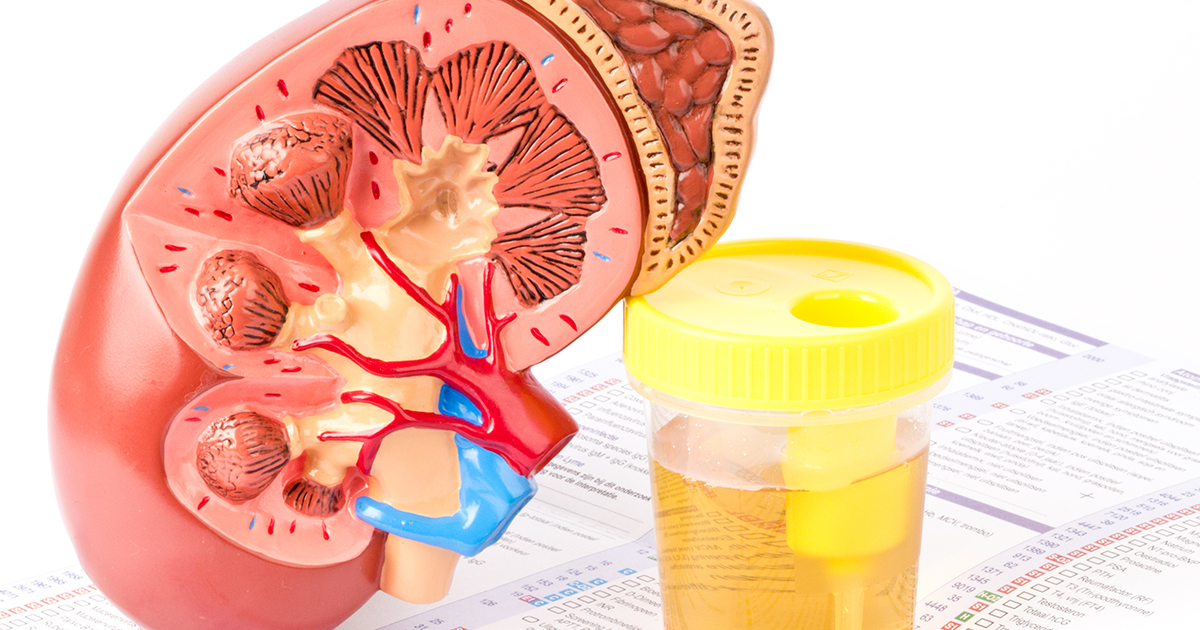Estimated Glomerular Filtration Rate (eGFR) and Its Importance in Assessing Kidney Function

The kidneys play a vital role in filtering waste products and excess fluids from the blood. One important measure used to assess kidney function is the estimated glomerular filtration rate (eGFR). In this article, we will explore what eGFR is, its relationship to kidney function, how to interpret the results, and what steps to take if the eGFR level is low.
What is eGFR?
eGFR, or estimated glomerular filtration rate, is a calculation that estimates the kidneys’ filtering capacity. It is measured in milliliters per minute and provides valuable information about how well the kidneys are functioning. eGFR is based on the levels of a waste product called creatinine in the blood, along with other factors such as age, sex, and body type.
How is eGFR related to kidney function?
The glomerular filtration rate (eGFR) represents the rate at which blood is filtered by the glomeruli, tiny structures within the kidneys. GFR is considered the best indicator of kidney function. However, directly measuring GFR requires complex procedures. As a result, eGFR was developed as a practical and reliable estimate of GFR.
eGFR takes into account the level of creatinine in the blood, which is produced by muscle metabolism and excreted by the kidneys. When the kidneys are healthy, they efficiently remove creatinine from the blood. However, in cases of kidney dysfunction, the kidneys may have reduced filtering capacity, resulting in higher levels of creatinine in the blood and a lower eGFR.
It’s important to note that while eGFR is a valuable tool, it has some limitations. It may not be as accurate in certain populations, such as children, pregnant women, or individuals with extremes in muscle mass. Additionally, eGFR may not capture subtle changes in kidney function as effectively as direct eGFR measurement methods.
Despite these limitations, eGFR remains widely used in clinical practice due to its convenience and practicality. It serves as a valuable initial assessment tool and aids in monitoring kidney function over time, especially in individuals with chronic kidney diseases or those at risk for kidney problems.
Interpreting eGFR Results
The eGFR results are reported as a number, typically ranging from 90 – 120 mL/min or higher. A normal eGFR level is generally considered to be above 90 mL/min, indicating normal kidney function. However, it’s essential to note that the normal range may vary slightly depending on factors such as age, sex, and race.
An eGFR level below 60 mL/min for three or more months is an indication of chronic kidney disease (CKD). CKD is a progressive condition that can lead to kidney failure if left untreated. The severity of CKD is classified into different stages based on the eGFR level:
- Stage 1: eGFR ≥ 90 mL/min (kidney damage with normal or high eGFR)
- Stage 2: eGFR = 60 -89 mL/min (mildly decreased eGFR)
- Stage 3: eGFR = 30 – 59 mL/min (moderately decreased eGFR)
- Stage 4: eGFR = 15-29 mL/min (severely decreased eGFR)
- Stage 5: eGFR < 15 mL/min (kidney failure or end-stage renal disease)
Low eGFR level: What to Do?
If one’s eGFR level is below the normal range or falls into the CKD stages, it is crucial to take appropriate steps to manage your kidney health. Here are some important considerations:
- Consult with a healthcare professional: If you receive a low eGFR result, it is essential to consult with a healthcare professional, preferably a nephrologist, who specializes in kidney diseases. They can evaluate your overall health, conduct additional tests, and provide guidance on managing kidney health.
- Identify and manage underlying causes: Chronic kidney disease can be caused by various factors, including diabetes, high blood pressure, and certain medical conditions. Identifying and managing these underlying causes is crucial for preventing further kidney damage and slowing down the progression of CKD.
- Lifestyle modifications: Adopting a healthy lifestyle can have a significant impact on kidney health. This includes maintaining a balanced diet low in sodium and processed food, managing blood pressure, staying physically active, avoiding tobacco and excessive alcohol consumption, and maintaining a healthy weight.
- Medication management: Depending on the underlying causes and stage of CKD, healthcare professionals may prescribe medications to manage blood pressure, control blood sugar levels, reduce excess protein in the urine, and protect the kidneys from further damage.
- Regular monitoring: Regular follow-up visits and monitoring of kidney function through blood tests, including eGFR, are crucial for evaluating the progression of CKD and adjusting treatment plans accordingly.
- Dialysis and kidney transplantation: In advanced stages of CKD or kidney failure, dialysis or kidney transplantation may be necessary. These treatments help replace the filtering function of the kidneys and improve quality of life.
To conclude, eGFR is a valuable tool used to assess kidney function. It provides an estimate of the kidneys’ filtering capacity based on blood creatinine levels and other factors. Interpreting eGFR results helps identify chronic kidney disease and its stages. It is important for those who have a low eGFR level to consult with a healthcare professional for timely interventions to slow down the progression of kidney diseases and improve long-term outcomes.
- * All research and clinical data should be used as reference purposes only, results may vary.




